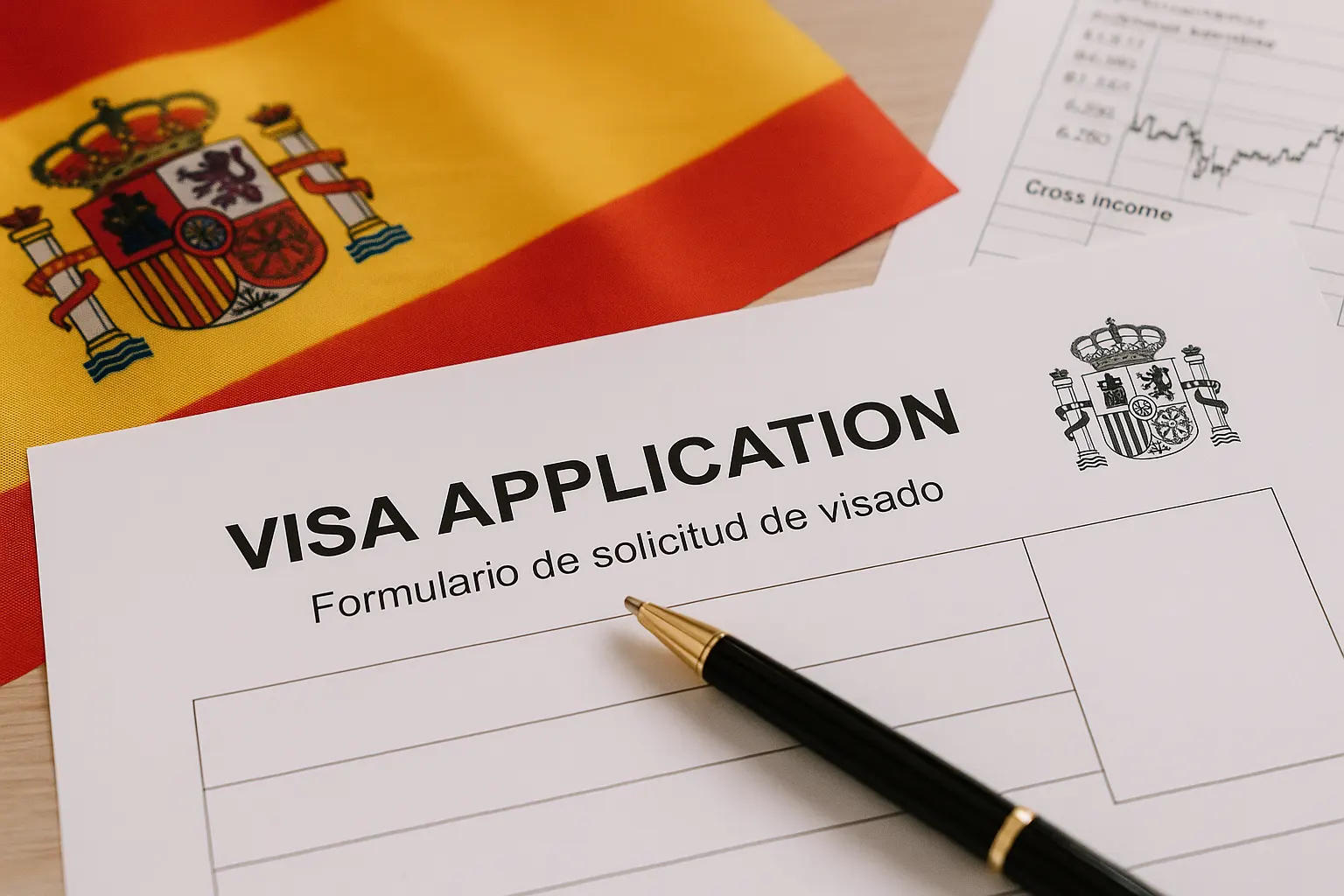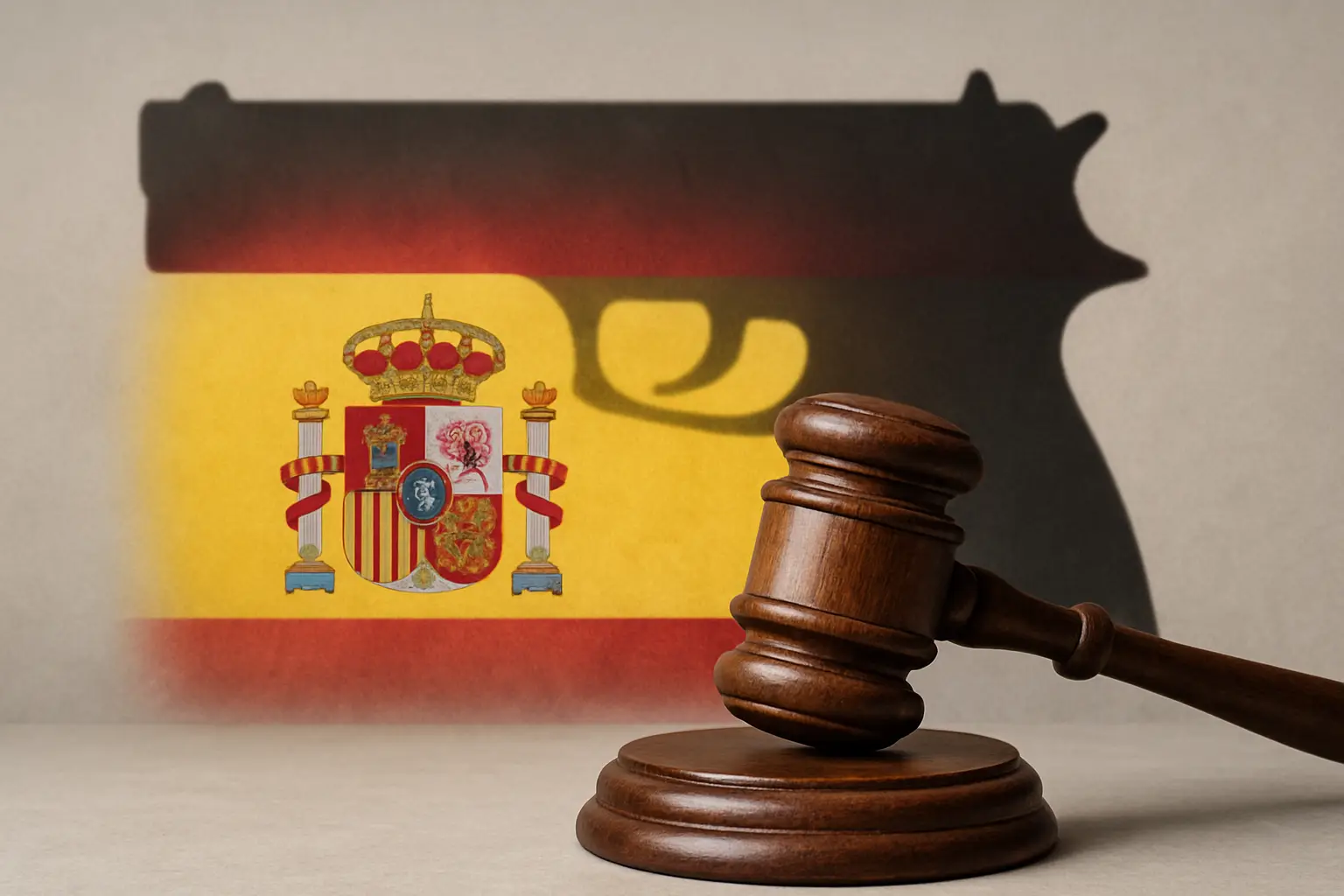In 2026, the freelance tax landscape in Spain and the UK presents distinct features that directly impact freelancers’ financial considerations. By delving into the intricate details of tax regulations in each country, freelancers can strategically position themselves for optimal tax planning. This guide aims to provide comprehensive insights into the nuanced differences between Spain and the UK’s taxation frameworks, empowering freelancers to navigate their tax responsibilities effectively.
For instance, understanding Spain’s 2026 tax brackets can significantly aid freelancers in planning their finances and maximizing deductions. Through a comparative analysis of freelance tax rates, social security contributions, allowable deductions, VAT obligations, and tax filing procedures, freelancers can gain a deeper understanding of how varying tax systems shape their financial obligations and operational choices.
1. Freelance Tax Rates: A Comparative Analysis
Freelancers in Spain and the UK face distinct freelance tax rates shaped by each country’s approach to progressive income taxation. Understanding these brackets clarifies how income is taxed differently, answering questions like is income tax higher in Spain or UK? and Spain tax vs UK for self-employed professionals.
Spain: Progressive Income Tax Brackets for Freelancers
Spanish freelancers fall under a progressive income tax system where rates increase with income levels. For 2026, the approximate tax brackets are:
-
Up to €12,450: 19%
-
€12,451 to €20,200: 24%
-
€20,201 to €35,200: 30%
-
€35,201 to €60,000: 37%
-
Above €60,000: 45%
Regional variations can apply since autonomous communities in Spain have some authority to adjust rates slightly. This means effective tax rates could vary depending on the freelancer’s location within Spain.
However, there are certain tax deductions available for expats living in Spain which can significantly reduce their overall tax liability.
UK: Income Tax Bands for Freelancers
The UK uses a similar tiered system with defined bands for income tax on freelance earnings:
-
Personal Allowance (up to £12,570): 0% (tax-free)
-
Basic rate (£12,571 to £50,270): 20%
-
Higher rate (£50,271 to £125,140): 40%
-
Additional rate (above £125,140): 45%
National Insurance contributions add another layer of cost but are discussed separately.
Tax Rate Impact on Freelancers
Key differences affect overall tax liabilities:
-
The UK offers a personal allowance, allowing freelancers to earn up to £12,570 tax-free.
-
Spain applies taxes from the first euro earned above minimal thresholds.
-
High earners in both countries reach a top marginal rate of around 45%, but the intermediate bands differ in width and rate.
For high-earning expats in Spain, understanding the Beckham Law could provide substantial tax benefits.
Examples of Taxation at Different Income Levels
|
Annual Income Approximate Tax in Spain Approximate Tax in UK €15,000 / £15,000 |
~22% effective rate |
~13% effective rate |
|
€40,000 / £40,000 |
~30% effective rate |
~20% effective rate |
|
€70,000 / £70,000 |
~38% effective rate |
~33% effective rate |
These figures illustrate that lower-income freelancers may pay comparatively less tax in the UK due to personal allowances. Mid-range incomes show closer alignment but with nuanced differences. Higher incomes face similar peak rates yet may experience distinct overall liabilities due to social contributions and regional taxes.
Questions such as can I live in Spain and pay tax in UK? depend heavily on residency status and double taxation treaties rather than mere comparison of tax rates. For instance, holders of a non-lucrative visa may have specific implications on their taxation based on international agreements.
2. Social Security Contributions vs National Insurance Contributions
Freelancers in Spain must comply with mandatory social security contributions Spain freelancers are required to pay. These contributions fund healthcare, pensions, and other social benefits. The standard monthly rate is approximately €294 (based on the minimum contribution base of €1,000 in 2026), but freelancers can choose a higher contribution base to increase future benefits. Recent reforms introduced a progressive contribution system, where payments adjust according to the freelancer’s declared income, benefiting those with lower earnings by reducing their obligatory fees. Newcomers may benefit from reduced rates during their first two years.
In contrast, self-employed individuals in the UK pay national insurance contributions UK self-employed, which are divided into two classes:
-
Class 2 NICs: A fixed weekly amount (£3.45 per week in 2026), payable if profits exceed £12,570 annually.
-
Class 4 NICs: Calculated as a percentage of annual profits—9% on profits between £12,570 and £50,270; 2% on profits above this threshold.
Upcoming reforms aim to align NICs more closely with income levels and potentially increase thresholds or rates. Self-employed workers must monitor these changes closely as they affect both payment levels and benefit entitlements such as state pensions and sickness benefits.
The differing structures reflect each country’s approach to social welfare funding for freelancers: Spain emphasizes a fixed minimum base with options for higher contributions tied to income, while the UK uses a dual-class percentage-based system linked directly to profit levels. Understanding these systems is essential for accurate financial planning and compliance within the entire europe.
3. Allowable Deductions and Expense Claims
Freelancers in Spain and the UK benefit from a range of deductible expenses that reduce taxable income, directly impacting their net tax liability. Recognizing these deductible expenses Spain freelancers can claim is essential for effective tax planning.
Common Deductible Expenses for Spanish Freelancers
Spanish tax authorities require that these expenses be necessary and justified as linked to business operations:
-
Office supplies and equipment: Computers, stationery, and software necessary for work.
-
Travel costs: Transportation expenses directly related to business activities.
-
Home office expenses: A proportion of rent, utilities, and internet fees when using part of the home exclusively for freelance work.
-
Professional services: Fees paid to accountants, lawyers, or advisors.
-
Training and courses: Expenses related to skill development pertinent to the freelance profession.
Allowable Business Expenses for UK Self-Employed Individuals
The UK system allows deductions on similar categories:
-
Costs of goods bought for resale or raw materials.
-
Business premises costs including rent, utilities, and maintenance.
-
Travel and vehicle expenses incurred exclusively for business purposes.
-
Professional fees such as insurance premiums and accountancy fees.
-
Marketing and advertising costs.
Importance of Accurate Record-Keeping
Both jurisdictions emphasize maintaining accurate records and retaining receipts. This practice safeguards freelancers during audits by proving that claimed expenses are legitimate business costs. Digital record management tools can streamline this process and reduce human error.
Comparing tax in Spain vs UK highlights that while the nature of allowable expenses overlaps significantly, documentation standards and specific limits may differ. Understanding these nuances ensures freelancers optimize deductions without risking non-compliance across the kingdom.
4. Value Added Tax (VAT) Differences
Value Added Tax (VAT) is a consumption tax applied to goods and services in both Spain and the UK. Freelancers operating in either country must understand their VAT obligations, which vary based on turnover, activity type, and registration status.
VAT obligations for freelancers in Spain
Freelancers in Spain must be aware of the following VAT obligations:
-
Registration threshold: Freelancers in Spain must register for VAT if their annual turnover exceeds €85,000 for intra-community acquisitions or if they engage in taxable activities exceeding this limit. It’s important to note that obtaining the necessary Tax ID Numbers in Spain such as NIE, CIF, or VAT is crucial for compliance.
-
Standard rate: The general VAT rate is 21%, with reduced rates of 10% and 4% applicable to certain goods and services.
-
Filing requirements: VAT returns are typically filed quarterly using Form 303, with deadlines on the 20th of the month following each quarter. An annual summary return (Form 390) complements these filings.
-
Invoicing rules: Invoices must include VAT details such as the applicable rate and total VAT charged, ensuring compliance with Spanish regulations.
VAT obligations for self-employed individuals in the UK
Self-employed individuals in the UK should be aware of the following VAT obligations:
-
Registration threshold: Freelancers must register for VAT if their taxable turnover exceeds £85,000 in a rolling 12-month period.
-
Standard rate: The standard UK VAT rate stands at 20%, with reduced rates of 5% and zero rates applying to specific supplies.
-
Filing requirements: Quarterly VAT returns are submitted electronically via the HMRC Making Tax Digital (MTD) system. Deadlines fall one month and seven days after the end of each VAT period.
-
Flat Rate Scheme: Some freelancers may opt for the Flat Rate Scheme to simplify VAT accounting by paying a fixed percentage of turnover as VAT.
Both countries require detailed record-keeping of all sales and purchases subject to VAT. Non-compliance can lead to penalties or interest charges. Understanding these distinctions aids freelancers in maintaining correct VAT practices aligned with local laws in each kingdom.
5. Tax Filing Procedures: Quarterly vs Annual Returns
1. Tax Filing Procedures in Spain for Freelancers
Spanish autónomos, or freelancers, are required to file their taxes on a quarterly basis. This system involves submitting tax returns every three months to the Spanish tax authorities.
The quarterly filings allow freelancers to spread out their tax obligations and prevent large lump sum payments at the end of the year. However, it’s important to note that choosing between being an autónomo or forming an SL (Sociedad Limitada) can significantly impact your tax situation and liability in Spain.
2. Self-Assessment Process for UK Freelancers
In contrast, UK freelancers follow an annual self-assessment process for filing their taxes. They are responsible for reporting their income, expenses, and any other relevant financial information to HM Revenue and Customs (HMRC) once a year.
This process requires freelancers to calculate their tax liability themselves and make sure all necessary documentation is submitted accurately and on time.
3. Key Differences Between Quarterly and Annual Systems
-
The quarterly system in Spain may require more frequent attention and monitoring of cash flow throughout the year.
-
UK freelancers under the annual self-assessment process have more time to gather information but face a potentially larger tax bill at the end of the fiscal year.
4. Implications for Freelancers
-
Spanish freelancers benefit from regular check-ins with their financial situation but need to be diligent with record-keeping for quarterly filings.
-
UK freelancers have the advantage of more time for preparation but must ensure they meet the annual deadline without delay. However, it’s worth exploring options such as the Beckham Law, which can offer significant tax savings for UK digital nomads living in Spain.
6. Residency Rules Affecting Taxation
Understanding your residency status is crucial for determining tax obligations under the frameworks of tax residency Spain vs UK. Each country applies distinct criteria to establish whether an individual qualifies as a tax resident, directly impacting the scope of taxable income.
Spain’s Tax Residency Rules
-
Residency is generally determined by physical presence: spending more than 183 days in Spain within a calendar year.
-
Center of economic interests: if the main base of your business or professional activities lies in Spain.
-
Family ties: having your spouse and underage dependent children residing in Spain may influence residency status.
Spanish residents are subject to taxation on their worldwide income, whereas non-residents are taxed only on Spanish-sourced income.
UK’s Tax Residency Rules
-
The Statutory Residence Test (SRT) assesses factors such as days spent in the UK, connections like accommodation, family, and work.
-
Spending 183 days or more in the UK typically establishes residency.
-
The SRT includes detailed tests that consider patterns over multiple years.
UK residents pay tax on global income but may benefit from reliefs under double taxation agreements.
Key Consideration: Dual residency can arise under these rules, necessitating examination of treaties between Spain and the UK to prevent double taxation. Freelancers operating across borders must carefully assess their status to comply accurately with tax in Spain vs UK requirements, ensuring they understand the rules of each kingdom.
Practical Considerations for Cross-Border Freelancers
Cross-border freelance taxation introduces complexities that require careful navigation. Freelancers operating between Spain and the UK must consider several key challenges:
-
Dual Tax Obligations: Freelancers may be subject to tax requirements in both countries. Understanding which income is taxable where and how to report it correctly is essential to avoid legal complications.
-
Double Taxation Avoidance: Spain and the UK have a double taxation agreement, but applying it correctly demands detailed knowledge of residency rules, income sourcing, and applicable credits or exemptions.
-
Social Security Coordination: Determining where social security contributions should be paid involves assessing work location, contract terms, and duration of stay in either country. Incorrect payments can lead to penalties or loss of benefits.
-
Currency and Payment Systems: Managing invoicing and payments across different currencies adds administrative complexity, impacting cash flow and accounting accuracy.
-
Compliance with Local Regulations: Each jurisdiction has unique registration, filing deadlines, and documentation requirements that freelancers must meet to remain compliant.
Addressing these challenges proactively helps maintain smooth operations and reduces the risk of costly errors in cross-border freelance taxation.
Conclusion
Considering the freelance taxation landscape in Spain and the UK for 2026, the choice of where to base your freelance business depends on various factors.
Spain may be more advantageous if you prioritize:
-
Lower income tax rates for high earners
-
Access to tax incentives like the Beckham law
-
Potential for residency leading to citizenship
UK could be preferable if you value:
-
Simplicity in tax filing with annual returns
-
Familiarity with the National Insurance contributions system
Ultimately, your individual circumstances and preferences will dictate which tax system aligns best with your freelancing goals in either british kingdom.
Frequently Asked Questions
What is the specific tax rate for Spanish freelancers earning between €20,201 and €35,200 in 2026according to the article?
For 2026, Spanish freelancers earning between €20,201 and €35,200 fall into a progressive income tax bracket of 30%. This is part of Spain’s progressive income tax system where rates increase with income levels.
How does the UK’s Personal Allowance for freelancers differ from Spain’s approach to the first euro earned, as detailed in the article?
The UK offers a Personal Allowance, allowing freelancers to earn up to £12,570 tax-free. In contrast, Spain applies taxes from the first euro earned above minimal thresholds, indicating a key difference in how initial income is taxed in each country.
According to the comparative analysis, what is the approximate effective tax rate for a freelancer earning €15,000 / £15,000 annually in Spain versus the UK?
For an annual income of €15,000 / £15,000, the approximate effective tax rate in Spain is around 22%, whereas in the UK, it is approximately 13%. This highlights a significant difference in tax liabilities at this income level.
The article mentions that regional variations can apply to Spanish tax rates. What specific governmental bodies have the authority to adjust these rates?
The article states that regional variations can apply because autonomous communities in Spain have some authority to adjust rates slightly. This means effective tax rates could vary depending on the freelancer’s location within Spain.
What is the tax rate applied to freelance earnings in the UK for income falling within the ‘Basic rate’ band, according to the provided income tax bands?
In the UK, freelance earnings falling within the ‘Basic rate’ band, which ranges from £12,571 to £50,270, are taxed at a rate of 20%. This is part of the UK’s tiered system for income tax on freelance earnings.
Is Spanish tax higher than UK tax?
The article indicates that the UK offers a Personal Allowance, allowing freelancers to earn up to £12,570 tax-free. In contrast, Spain applies taxes from the first euro earned above minimal thresholds, suggesting that Spanish tax could be higher for lower income brackets compared to the UK’s tax-free allowance.
How much tax do you pay as a freelancer in Spain?
As a freelancer in Spain for 2026, your approximate tax rate depends on your income: up to €12,450 is taxed at 19%, €12,451 to €20,200 at 24%, €20,201 to €35,200 at 30%, €35,201 to €60,000 at 37%, and above €60,000 at 45%. Regional variations may also apply.
How much tax does a freelancer pay in the UK?
In the UK, a freelancer pays 0% tax on income up to £12,570 (Personal Allowance). Income between £12,571 and £50,270 is taxed at a basic rate of 20%, income from £50,271 to £125,140 at a higher rate of 40%, and income above £125,140 at an additional rate of 45%. National Insurance contributions are separate.
How to avoid the 60% tax trap in the UK?
This article does not mention or provide details on a ‘60% tax trap’ in the UK, nor does it offer advice on how to avoid it. The highest income tax band mentioned for the UK is 45% for income above £125,140.














